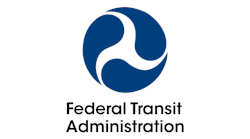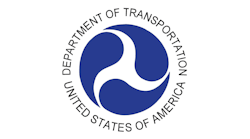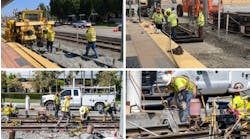District of Columbia Meets Important Rail Transit Safety Program Deadline
The U.S. Department of Transportation’s Federal Transit Administration has announced that the District of Columbia has obtained federal certification for its rail transit State Safety Oversight (SSO) Program. Under the District’s SSO Program, the D.C. Fire and Emergency Management Services is responsible for providing safety oversight of the D.C. Streetcar system.
“The District of Columbia is among the first in the nation to achieve SSO Program certification to strengthen rail transit passenger and worker safety,” said FTA Deputy Administrator K. Jane Williams. “FTA is doing all we can to help states certify their safety oversight programs so transit agencies can continue to receive federal funding for the safe movement of millions of people every day.”
There are 30 states with rail transit systems that must obtain certification of their SSO Programs by the April 15, 2019 deadline. If a state fails to meet the deadline, the FTA is prohibited by law from awarding any new federal transit funds to transit agencies within the state until certification is achieved. A certification status table by state is available online. Currently, five states still require state legislative or executive action prior to FTA certification (Illinois, Michigan, New York, Oklahoma, and Tennessee). By federal law, the deadline cannot be waived or extended.
Separately, the District of Columbia, together with Virginia and Maryland, are expected to jointly submit to the FTA an SSO Program certification application for the Washington Metropolitan Area Transit Authority Metrorail system, which will be overseen by the Metrorail Safety Commission. FTA continues to work closely with the jurisdictions as they work to achieve SSO Program certification and the resumption of state safety oversight of Metrorail.
To achieve FTA certification, an SSO Program must meet several federal statutory requirements, including establishing an SSO agency that is financially and legally independent from the rail transit agencies it oversees. In addition, a state must ensure that its SSO agency adopts and enforces relevant federal and state safety laws, has investigatory authority, and has appropriate financial and human resources for the number, size and complexity of the rail transit systems within the state’s jurisdiction. Furthermore, SSO agency personnel responsible for performing safety oversight activities must be appropriately trained.




